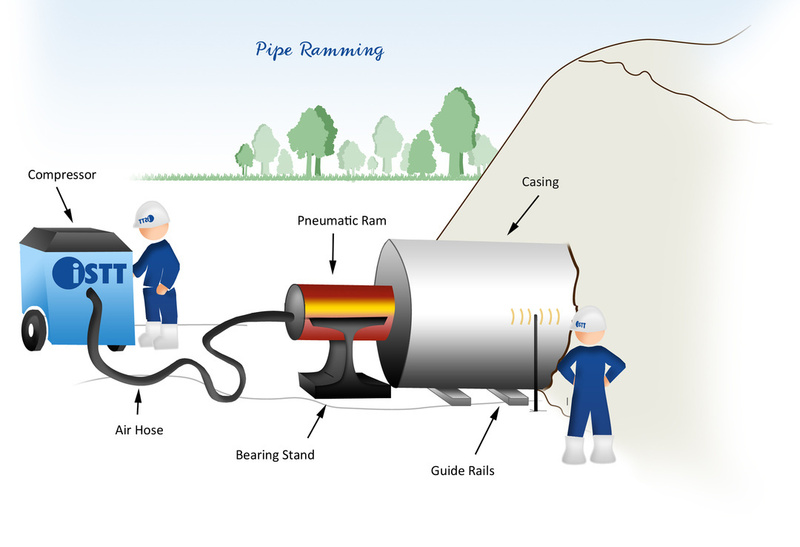Pipe ramming is a trenchless method for installing steel casing pipe under roads, railroads and other structures. The casing is installed open ended, which allows the soil to enter the casing. Containing the soil in the casing minimizes the potential for surface settlement, which allows the casing to be installed at relatively shallow depths and in difficult soil conditions including flowing sands, gravel, cobbles, and boulders. Pipe ramming is also used to install wash-over casings in directional drilling operations to bypass difficult soil conditions at the launch or exit areas.

Pipe ramming is a straightforward process. The product or casing pipe, fitted with a cutting shoe and lubricant pipes, is positioned on rails located on a stable platform, which allows the casing to be pushed into soil embankment on the designed alignment. A pneumatic hammer powered by compressed air is attached to the casing using a cone or collet/collar system. The ram hammers the open ended casing pipe through the soil to the exit area. Additional pipe lengths may be welded onto the casing periodically to lengthen the drive. Some soil may be removed during installation to reduce frictional drag of the casing but enough soil is kept in the casing until the completion of the drive to maintain a plug at the face of the casing. The soil contained in the casing when the drive is completed is removed typically by water or by air-pressure, or in the case of larger casings by auger
Pipe Ramming![]() Descargar / Download
Descargar / Download






